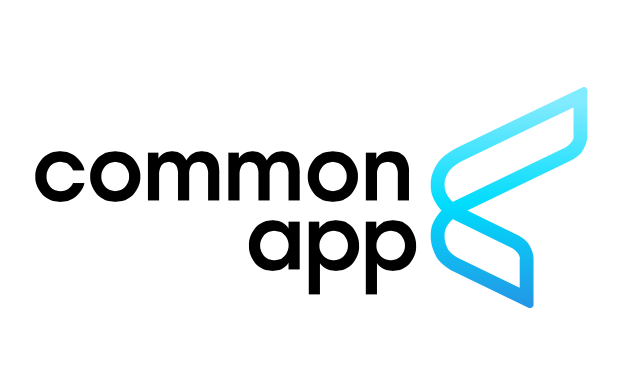 In the contemporary era, numerous individuals pursue professions that provide beyond mere financial compensation. They aspire to engage in occupations that resonate with their principles and enable them to make meaningful contributions toward a brighter tomorrow.
In the contemporary era, numerous individuals pursue professions that provide beyond mere financial compensation. They aspire to engage in occupations that resonate with their principles and enable them to make meaningful contributions toward a brighter tomorrow.
Some fulfilling career paths that offer the chance to make a real difference in society are much needed. Through these diverse fields, you’ll discover how your skills and passions can be harnessed to tackle critical issues, empower communities, and create positive change.
Today, let’s explore six impactful careers that offer personal fulfillment and contribute significantly to positive change in society.
Social Work
Social work offers a fulfilling vocational journey for individuals dedicated to enhancing the well-being of people, families, and societies grappling with adversities. Social workers undertake pivotal responsibilities in tackling diverse challenges like poverty, domestic violence, substance use, mental health concerns, etc., thereby making invaluable contributions to society.
According to Gitnux, around 720,000 social workers are already employed in the US. The field is anticipated to grow by 13% from 2019 to 2029. Around 26% of social workers are employed in the public sector.
To be a social worker, you can start by taking up a related course. Around 50% of the social workers have a master’s degree. A Master of Social Work (MSW) degree equips graduates with the advanced knowledge and skills needed to excel in this field.
MSW programs delve deeper into social work theory and practice and offer specialized training in some fields. These include community organizing, clinical social work, or macro social work focusing on policy and advocacy.
According to MSW Degrees, this advanced degree opens doors to leadership positions and allows clinical licensure in many areas. It ultimately strengthens your ability to significantly impact the lives of those you serve.
Additionally, an MSW often includes fieldwork or internships, allowing students to gain hands-on experience and build professional networks. Equipped with master in social work degrees, individuals can pursue specialized roles, like clinical, school, or healthcare social work.
Environmental Conservation
Does protecting endangered species or restoring natural habitats ignite your passion? Environmental conservation offers a multitude of rewarding careers. This critical field focuses on protecting and preserving natural resources and ecosystems. It allows you to combine your love for the planet with tangible actions that make a lasting difference.
A fulfilling career in environmental conservation entails tackling urgent environmental challenges like climate change, habitat destruction, pollution, and biodiversity loss. Those in this field can hold diverse positions, such as conservation scientists, environmental engineers, policy analysts, and sustainability consultants. By merging a love for nature with specialized expertise, individuals can significantly contribute to protecting the planet.
Education
Education is a cornerstone for positive societal change, and a career in this field allows you to directly contribute to shaping young minds. Some inspire a love of literature in middle schoolers, while others want to guide high school students through complex scientific concepts. In any form, educators play a vital role in nurturing curiosity, critical thinking, and future potential.
A rewarding career in education can be built through various paths, including traditional classroom teaching, special education, or educational technology. Each path requires dedication and a passion for fostering learning. The rewards of witnessing your students’ growth and sparking a lifelong love of learning make it a truly impactful profession.
According to the Bureau of Labor Statistics, preschool teachers’ employment is expected to grow by 3% from 2022 to 2032. Around 56,300 vacancies for preschool teaching are projected each year. Continuous professional development, such as pursuing advanced degrees, attending workshops, and staying updated with educational trends, can help you grow as an educator.
Healthcare
The healthcare sector presents a distinct fusion of personal gratification and broader societal influence. Healthcare practitioners are essential in enhancing individuals’ well-being through diagnosing, treating ailments, and delivering empathetic support. This field boasts a vast array of career paths, allowing you to tailor your skills and interests to a specific area. It can be ground-breaking medical research, patient advocacy, or providing critical support services.
The fast-paced, ever-evolving nature of healthcare ensures constant learning and intellectual stimulation. The opportunity to directly aid patients in their recovery journeys brings immense personal satisfaction. With the increasing demand for healthcare services, choosing a healthcare career can lead to a rewarding and impactful professional life.
Nonprofit Organizations
Nonprofit organizations are the beating hearts of social change, tackling critical issues and empowering communities. They provide essential services from food banks and homeless shelters to environmental advocacy and arts education. Working in the nonprofit sector allows you to directly contribute to society, whether it’s social justice, animal welfare, or scientific advancement.
According to Zippia, currently, there are around 1.5 million nonprofit organizations in the US. The nonprofit organization employs 10% of the US workforce and 7.4% of the global workforce. Mostly in international nonprofit organizations, 70% of the staff are paid workers, while 29% are volunteers.
Nonprofit careers can be incredibly rewarding, offering the chance to witness the impact of your work on real people’s lives. While salaries may not always be top-tier, the sense of purpose and the opportunity to make a tangible difference can be a powerful motivator.
Social Entrepreneurship
Social entrepreneurship marries innovation with social good, offering a path to creating positive change through business ventures. Social entrepreneurs identify social or environmental problems and develop creative solutions that are financially sustainable. This could involve anything from creating a for-profit company empowering underprivileged communities to developing educational technology tools accessible to students in remote areas.
The financial rewards of social entrepreneurs may not be the sole motivator. A career in social entrepreneurship offers the immense satisfaction of building businesses that solve problems and create a ripple effect of positive impact. It’s a rewarding path for those who want to leverage business acumen to make the world a better place.
Frequently Asked Questions
How can individuals prepare for a career in social change?
Individuals can prepare for a career in social change by volunteering or interning with social impact organizations. They can also earn degrees in social work, public policy, or related fields to develop relevant skills like communication, advocacy, and research. Building networks with like-minded individuals and organizations can enhance their ability to effect positive change.
What skills are valuable for professionals seeking to make a difference in society?
Professionals aiming for social impact need a strong foundation in communication and collaboration. They should also be passionate about the cause they choose and possess the ability to translate that passion into effective solutions. Analyzing intricate social issues and crafting innovative solutions require essential skills like critical thinking and problem-solving.
How can individuals determine which meaningful career path aligns best with their personal interests and values?
To find the impactful career that resonates with you, explore your passions and what issues stir your desire for change. Research different fields and consider how your skills and values can contribute. Talk to professionals and volunteer to gain firsthand experience – the perfect fit will ignite your enthusiasm and leave you feeling fulfilled.
In summary, the world requires dedicated individuals to address intricate problems and forge a better tomorrow. This article has delved into only a handful of the numerous meaningful career avenues out there. Keep in mind that the most rewarding journey is the one that reflects your principles and fuels your enthusiasm.
Whether you dream of protecting endangered species, fostering a love of learning in students, or developing innovative solutions, there’s a path waiting for you. So, take the first step, explore your options, and embark on a rewarding career that allows you to leave an impact on the world.
 Entrepreneurs and budding entrepreneurs, as drivers of innovation and business expansion, continuously strive to enhance their expertise and maintain a competitive edge. With this in mind, in the contemporary digital era, entrepreneurs are increasingly relying on online education as a valuable tool. It provides them with flexibility, accessibility, and a wide array of tailored courses to meet their unique requirements.
Entrepreneurs and budding entrepreneurs, as drivers of innovation and business expansion, continuously strive to enhance their expertise and maintain a competitive edge. With this in mind, in the contemporary digital era, entrepreneurs are increasingly relying on online education as a valuable tool. It provides them with flexibility, accessibility, and a wide array of tailored courses to meet their unique requirements.
 Villanova University invites rising tenth, eleventh, and twelfth grade students to submit an application to the
Villanova University invites rising tenth, eleventh, and twelfth grade students to submit an application to the 
 Are you passionate about helping others navigate life’s challenges and reach their full potential? If so, a career in counseling might be the perfect fit for you. Counseling offers a rewarding path through which you can make a positive impact on individuals, families, and communities. Yet, within the broad field of counseling, numerous specializations exist, each catering to specific needs and populations.
Are you passionate about helping others navigate life’s challenges and reach their full potential? If so, a career in counseling might be the perfect fit for you. Counseling offers a rewarding path through which you can make a positive impact on individuals, families, and communities. Yet, within the broad field of counseling, numerous specializations exist, each catering to specific needs and populations. Wesleyan University, which has just notified Regular Decision applications of whether or not they’ve earned admission, received a grand total of 14,826 first-year applications across all of its 2023-2024 admissions rounds, and it ultimately extended offers of admission to 2,380 students.
Wesleyan University, which has just notified Regular Decision applications of whether or not they’ve earned admission, received a grand total of 14,826 first-year applications across all of its 2023-2024 admissions rounds, and it ultimately extended offers of admission to 2,380 students.


 Those students who are being reviewed Regular Decision for Boston University’s Class of 2028 will receive their admissions decisions on Saturday, March 23, 2024. Such first-year applicants will receive emails when their decisions are available within their BU web accounts on the MyBU Applicant Portal.
Those students who are being reviewed Regular Decision for Boston University’s Class of 2028 will receive their admissions decisions on Saturday, March 23, 2024. Such first-year applicants will receive emails when their decisions are available within their BU web accounts on the MyBU Applicant Portal.